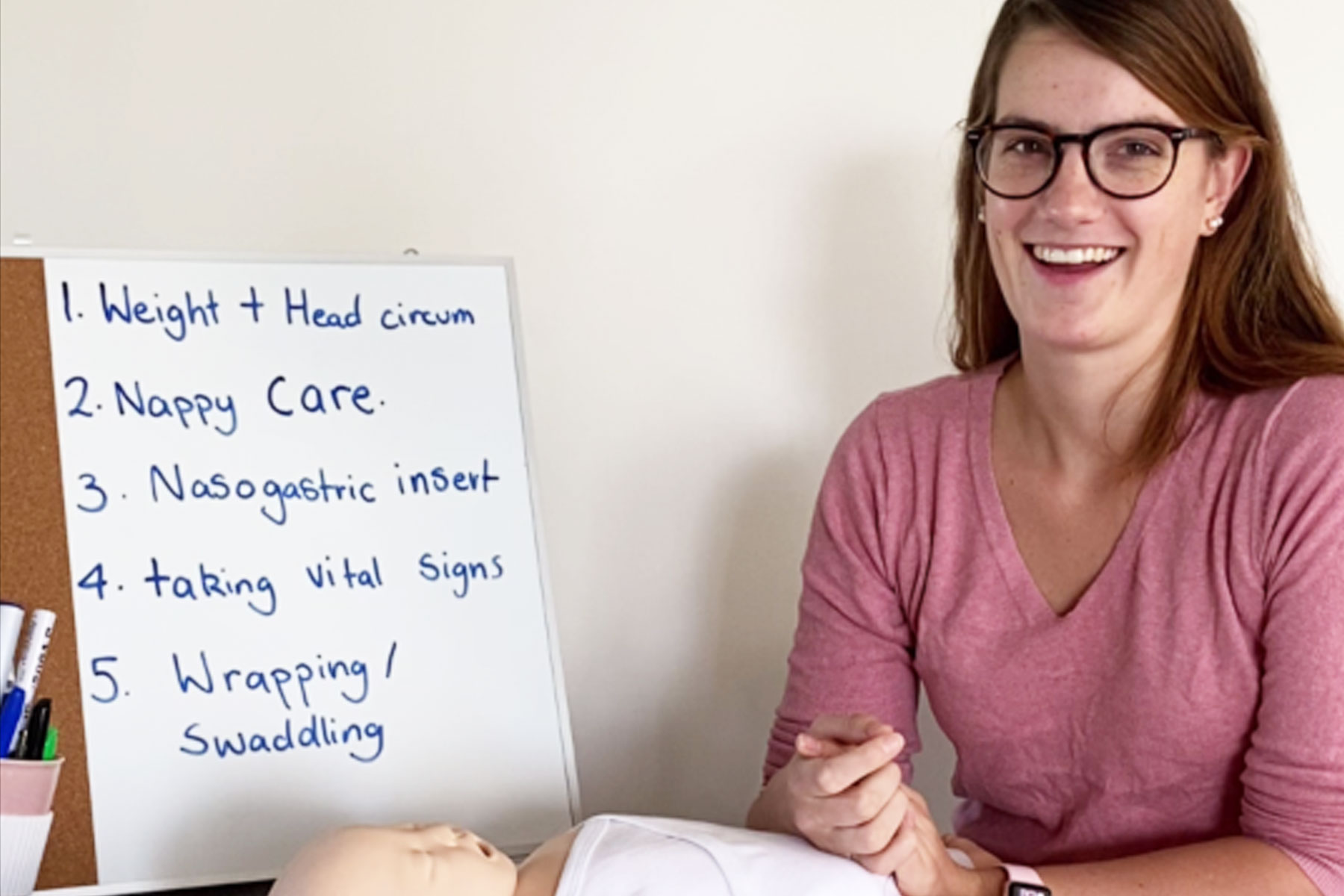When it comes to grad year interviews, the perceived pressure of your whole bachelor’s degree can be overwhelming.* They aren’t easy and, for some, never will be.
Graduate application tips for nurses was the topic of one of the first articles I wrote for the Scrubs that Fit column in 2018. The five tips I outline below builds on this article and adds my new knowledge gained through my experiences as a University Unit Coordinator and Clinical Support Nurse in the Neonatal Intensive Care Unit.
1: Be authentic
One of the key things a graduate year intake is looking for is people who are genuine and will fit in to the team environment. Be sure to let your personality shine!
As I tell my undergraduate students, you have made it this far in the Bachelor of Nursing for a reason; you are good nurses and people. If nerves start to creep in, reflect on why you chose to be a nurse and the times you’ve ALREADY make a difference to a person’s life as a student.
It is okay to be nervous and, if you are, it can also be helpful to let the interviewer know this when they ask how you are as it is a good way to break the ice and shows emotional intelligence.
2: Be honest
It is an expectation that there will be things you don’t know. If this is the case, don’t guess and instead identify that you are unsure and talk about places you would find the information before proceeding.
These situations can be stressful and if you come across one make sure you stop and take a deep breath so you can think about the question clearly. Ask them to repeat if necessary.
Being honest also means not making false claims or embellishing to the point of lying. I would hope this is a given, but it is important that you do not do this, no matter how anxious or stressed you are.
3: Do prior research
Make sure you know the role, organisation, demographic and hospital/health service that you are applying for. It shows your enthusiasm when you already have information about the place you want to work before you start.
Other useful information to know includes knowing what type of patients the service looks after, how high the acuity is, available support and the outline expectations of the role (shift work etc).
The important details are easy enough to find and the organisation’s webpage and job application portal are a good place to begin.
Finally, try find out who you are likely to be interviewing with and learn about them. For example, this could be the NUM/educator of wards or the grad coordinator.
#4: Don’t be afraid to ask questions
Leading on from the point above, it is important to show you know what you are applying for by having a question ready for the panel. This task takes a bit of researching, but it should be easy enough if you’ve nailed point three.
Good questions are ones that show you’ve researched the organisation, your willingness to progress as a nurse and are not able to be answered online.
#5: Stop, reflect and learn
Finally, after the interview stop and reflect on how it went. For some, it helps to write down the questions, your answers, thoughts and feelings and how you think you went. There is no better learning opportunity than the real thing, so make sure you take advantage of the opportunity to grow from the experience, regardless of how you think performed.
In some instances, you will be allowed to ask for feedback after the graduate application has closed but please note this is not always available.
In summary, you are already enough for these positions, its why you’ve passed (or nearly passed) your nursing studies.
What the interviewer dosen’t want is a carbon copy of “the perfect undergrad”. Know your strengths and limitations and go in ready to show that interviewer why they need you and why you want to work for them!
This column, the Scrubs that Fit, follows the journey of Australian College of Nursing (ACN) Emerging Nurse Leader (ENL) alumni Lucy Osborn MACN as she navigates through the nursing profession. The column began as a space to share the highs and lows of being an early-career nurse and has transitioned over time to focus on how to grow within the ever changing world of nursing. This draws on her experiences as a University Unit Coordinator, Clinical Support Nurse in one of Australia’s biggest Neonatal intensive care units and Chair of ACN’s Next Generation Community of Interest (COI).






